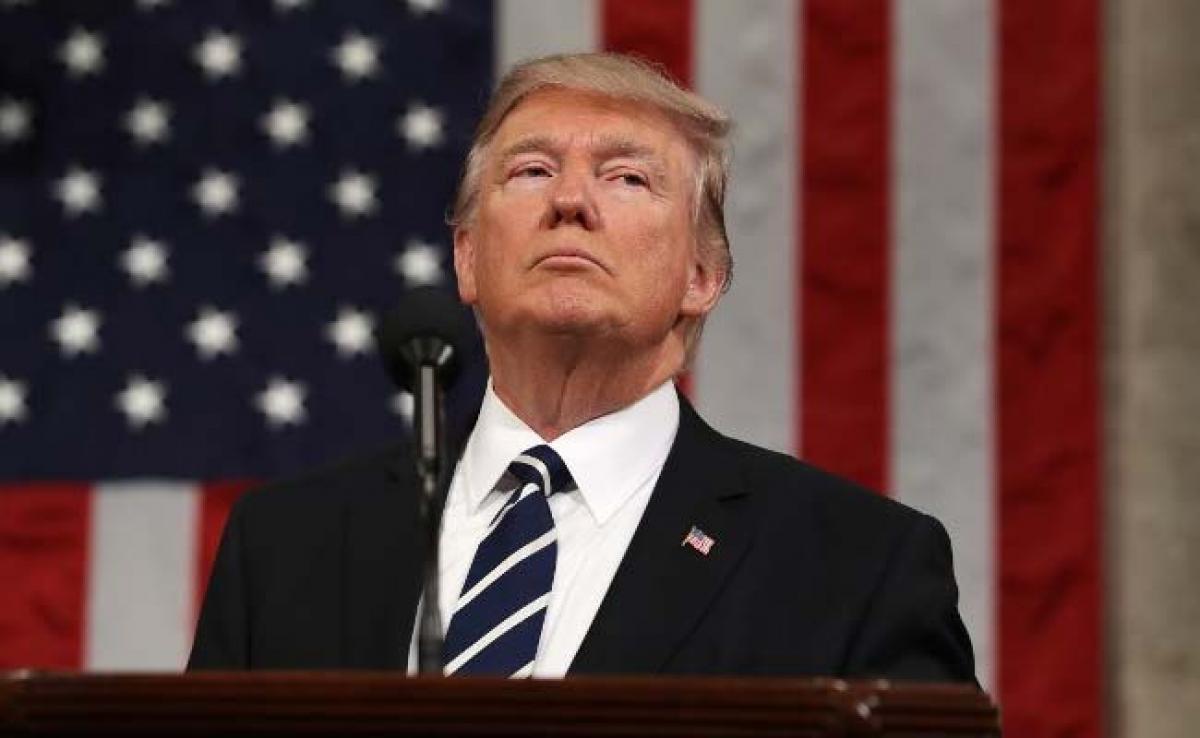Live
- RG Kar issue: Tension flared over parallel protests by Congress, SUCI(C) outside CBI offices
- After furore, Central Railway revokes order to raze Lord Hanuman Temple at Dadar
- Now hoteliers' body in Bengal's Alipurduar shut doors for Bangladeshi tourists
- District Collector Encourages Students to Utilize Government Facilities for a Better Future
- Per capita availability of fruits, vegetables increases in India
- FII buying reaches Rs 22,765 crore in Dec as economic growth stays resilient
- National Energy Conservation Day 2024: Date, Importance, and Easy Ways to Save Energy
- Gastronomic trouble: After 'disappearing' samosas Himachal CM in row over red jungle fowl
- Meaningful dialogue a priceless jewel of democracy: Jagdeep Dhankhar
- CM Revanth Reddy Advocates for Gurukuls as Talent Development Centers
Just In

President Donald Trump\'s review of government spending has forced US diplomats to consider drastic budget cuts they fear would harm their ability to head off conflict -- and silence a superpower.
President Donald Trump's review of government spending has forced US diplomats to consider drastic budget cuts they fear would harm their ability to head off conflict -- and silence a superpower.
Already sidelined by Trump's foreign policy inner circle, Secretary of State Rex Tillerson's State Department has reportedly now been asked to suggest ways to slash 37 percent from its $50 billion budget.
Serving State Department staff said budget negotiations are "in the early stages" -- but there was no disguising the grim mood in the building, and former senior officials were scathing in their criticism of the idea.
Trump has promised the US military its biggest funding increase in history, boosting the Pentagon's spend to more than $600 billion with a hike greater than the State Department's entire annual budget.
He proposes to pay for this from the proceeds of increased growth and by making draconian cuts to several government programs and departments, including the State Department and its development agency USAID.
'Low Esteem'
Senate Majority Leader Mitch McConnell has already signalled he may not allow such a massive cut to the department to pass, but Trump's opening gambit is a sign of the low esteem he attaches to State.
"It's not like we have enough capacity right now," said Ilan Goldenberg, a senior fellow at the Center for a New American Security and a former senior official at both State and the Pentagon.
Goldenberg told AFP it would make no sense to gut the State Department just as Trump is demanding renewed efforts to conclude counter-terror operations against the ISIS in Iraq and Syria.
When the US military or its local allies defeat the jihadists, local authorities will need diplomatic and political support to rebuild communities and prevent an eventual slide back into violence.
But Trump made no mention of Iraq, Syria or Afghanistan -- still host to more than 8,000 US troops and the longest war in US history -- in a landmark speech to Congress on Tuesday laying out his priorities.
According to Goldenberg, the Pentagon has often drawn up ambitious counter-terrorism plans that rely upon State and USAID to work with local populations, only to find the diplomats lack the resources.
"The bottom line is if you actually ended up with this cut, it would be pretty devastating," he warned.
Faced with multiple violent crises around the globe, the big-spending Pentagon could quickly find ways to spend Trump's promised windfall -- but even the military establishment has not welcomed his plan.
On Monday, 120 retired generals and admirals -- including former CIA director and retired general David Petraeus -- signed a letter urging the president not to cut spending on diplomacy and foreign aid.
The officers argued that the State Department and development agencies' work is "critical to preventing conflict and reducing the need to put our men and women in uniform in harm's way."
'More Ammunition'
Trump's serving defense secretary, retired general Jim Mattis, has not spoken out about the budget debate. But in 2013, while he was still in uniform, he had a stark warning for Congress.
"If you don't fund the State Department fully, then I need to buy more ammunition ultimately," he said.
It may not come to that -- even Republican senators like Lindsey Graham and Marco Rubio have said they will oppose a drastic cut that might harm the safety of US diplomats working overseas.
And Rubio said of the idea of cutting USAID: "Foreign aid is not charity. We must make sure it is well spent, but it is less than one percent of budget and critical to our national security."
Tillerson, who has kept an extremely low profile since taking up his role, has made no public comment since reports of the planned cut and of low morale in his department surfaced.
Dozens of senior State Department positions are empty after the incoming administration elected to clear-out of figures who were seen as too close to outgoing president Barack Obama's worldview.
With many of the seventh floor executive offices in State's Foggy Bottom headquarters empty, Washington's foreign policy is in the hands of a tiny circle of Trump's White House advisors.
After his first choice for national security advisor was forced to resign amid controversy over his links to Russian officials, Trump's strategy chief, avowed nationalist Steve Bannon, has his ear.
And the president's son-in-law, Jared Kushner, is seen as setting the foreign policy agenda -- more so than Tillerson himself, who has been conspicuously absent from several key meetings with foreign visitors.

© 2024 Hyderabad Media House Limited/The Hans India. All rights reserved. Powered by hocalwire.com







